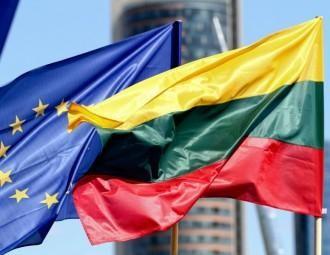Andrei Kazakevich: Lithuania is only one of the participants in Belarus-EU negotiations

The normalization of relations with the EU under Lithuania’s seniority in this structure will much depend on whether the Belarusan side is willing to make certain concessions.
This opinion in the talk with the EuroBelarus Information Service shared Andrei Kazakevich, the director of the Institute for Policy Studies Palіtychnaya Sphera (Political Sphere), commenting upon the statement made by the President of Belarus while accepting the credentials of Lithuanian Ambassador Evaldas Ignatavicius.
“We hope that the Lithuanian seniority in the EU in the second half of 2013 will become the period of active normalization of the Belarus-Europe relations”, - said Aliaksandr Lukashenka.
“I think that such steps of the Belarusan authorities is an attempt to find some basis for the dialog, - noted Andrei Kazakevich. – And that it was an appeal to the EU on the whole rather than to Lithuania in particular. Of course, the process of normalization will include consultations not only with Lithuania, but also with the other EU countries. And it is from these contacts that the success of normalization processes will much depend on”.
The political scientist believes that much will also depend on the real willingness of Belarus to make concessions, not only talk about it.
Blackmailing as the model for the foreign policy
Aliaksandr Lukashenka tried to relate political relations between Belarus and Lithuania to the economic collaboration of the two countries. Andrei Kazakevich believes that the way a question is put looks like a certain blackmailing of the Lithuanian side. “Belarus confidently employs such kind of foreign relations, trying to use certain leverages of blackmailing, for instance, in relation to Russia, when discussing the extension of collaboration with its geopolitical rivals, or in relation to Ukraine, when the border agreement is employed as an instrument”.
“Belarusan authorities demonstrate that if the Lithuania isn’t acting right and isn’t more attentive to the Belarusan interests it will have certain consequences”, - noted the expert.
However, such politics can hardly be of crucial influence onto the actions of the Lithuanian side, Andrei Kazakevich believes: “Of course, Lithuania can bear considerable losses, but in any case they won’t overweigh the benefits of collaboration with the EU and Euro-Atlantic structures. That is why the possibility of placing some pressure is rather limited there”.
“If we talk about the problem with the port of Klaipeda, then it still remains to be seen who will eventually suffer – Lithuania or Belarus, - the political scientist continued. – Because the situation when Lithuania starts using other harbors can lead to the increase of transport charges. So we can’t say that this is a powerful leverage”.
Andrei Kazakevich believes that the problem with the port of Klaipeda can be used by certain lobbying groups within Lithuania as an argument to change politics in relation to Belarus. “Lithuania has such political forces. But all this can influence the whole situation locally, without any drastic change”, - he emphasized.
How powerful is the “external bondage”?
When addressing Lithuanian Ambassador the President of Belarus called upon this country to “get rid of some outside pressures” while building politics in relation to Belarus. Does the Lithuanian politics in relation to Belarus really depend on the EU influence? Or is it that the official Vilnius is guided by the national interests first?
Andrei Kazakevich believes that the truth lies somewhere in between.
“Of course, Lithuanian policy in relation to Belarus should be carried out in accordance with the European politics. When it comes to Belarus, Lithuania should coordinate its actions at least with such countries as Poland and Germany. But there still remains certain space for manipulation, which Lithuania makes use of. If we consider the development of political and economic relations of our countries over the last decade, then we’ll see that Lithuania has often been trying to get a special stance in relation to Minsk, to be a mediator; a country that recognizes Belarusan problems”, - the political scientist recalled.
-
03.01
-
07.10
-
22.09
-
17.08
-
12.08
-
30.09








































